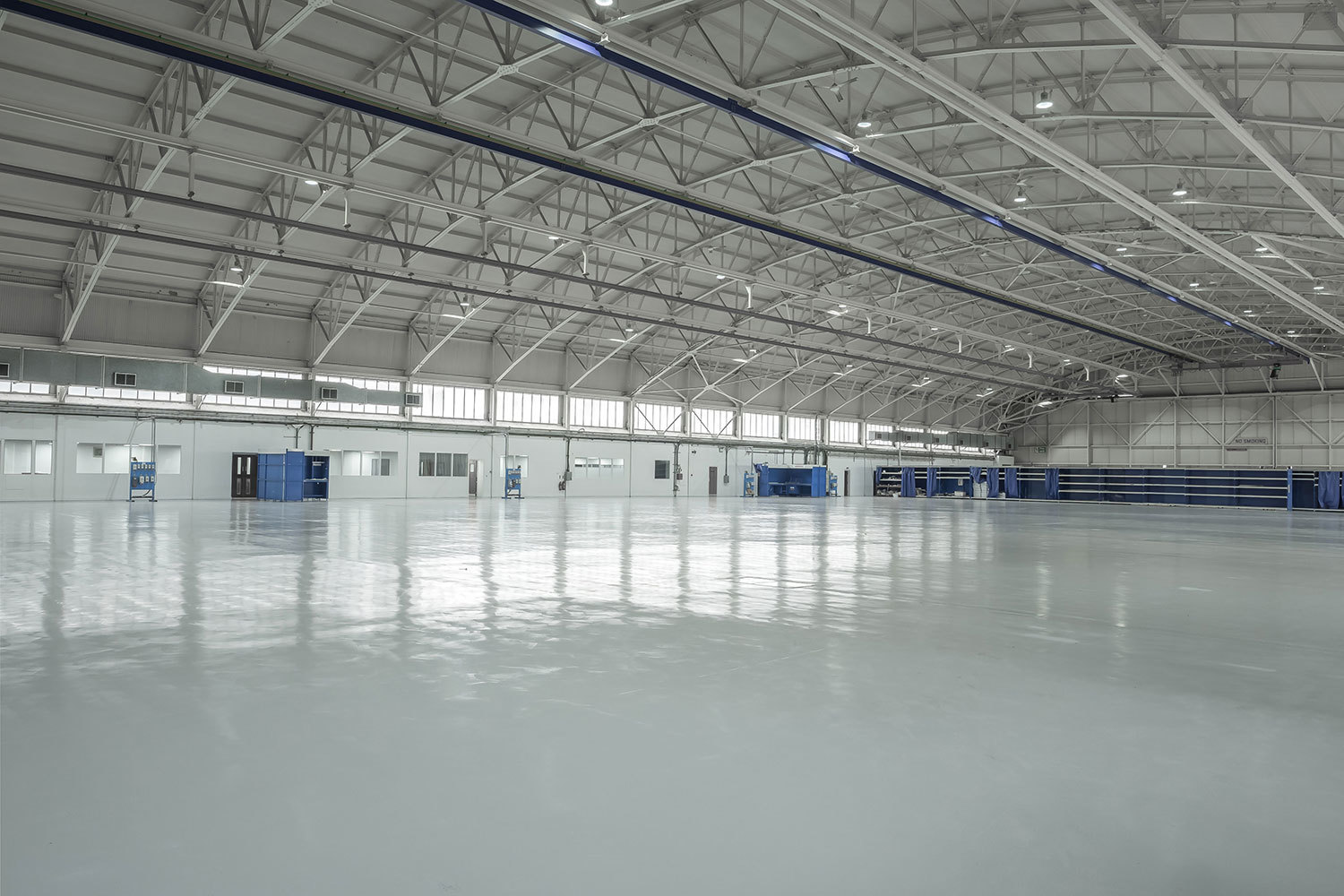When selecting the right warehouse flooring, it’s essential to focus on durability, safety, and functionality. Your warehouse flooring needs to withstand high traffic, heavy machinery, and the demands of your industry. Choosing the correct flooring will ensure smooth operations, reduce maintenance costs, and enhance employee safety, whether it’s a distribution centre, manufacturing plant, or storage facility.
Types of Warehouse Flooring Materials
Several flooring materials are used in warehouses, each offering unique advantages depending on the space’s specific needs. Let’s explore the most common types:
- Concrete Flooring
Concrete is popular for warehouse flooring because of its strength, durability, and affordability. It’s resistant to heavy loads and provides a smooth surface that is easy to clean. Concrete can also be sealed or coated with various finishes to improve its resistance to stains and chemicals. - Epoxy Flooring
Epoxy coatings are applied over concrete floors, creating a seamless, hard-wearing surface. This flooring is highly resistant to chemicals, abrasions, and impacts, making it ideal for warehouses dealing with chemicals, oils, or other harsh materials. Epoxy flooring is also slip-resistant, which enhances safety. - Vinyl Flooring
Vinyl is another resilient option for warehouse flooring, offering great flexibility and ease of maintenance. Vinyl flooring comes in rolls or tiles and is available in various designs and colours. It’s ideal for areas that require frequent cleaning and provides excellent comfort for employees who may spend long hours on foot. - Rubber Flooring
Rubber flooring is an excellent option for warehouses with high noise levels or where heavy foot traffic is common. Rubber flooring is shock absorbent, reducing noise and providing comfort for workers. It’s also non-slip, making it ideal for areas where safety is a top priority.
Factors to Consider When Choosing Warehouse Flooring
When selecting warehouse flooring, you must consider the specific requirements of your facility. Here are the key factors to keep in mind:
- Load-bearing Capacity: The flooring should be able to withstand heavy loads without cracking or becoming damaged. This is particularly important in warehouses with forklifts or other heavy machinery.
- Durability and Longevity: You’ll want flooring that can stand up to years of wear and tear. Choose a material that won’t need frequent repairs or replacements.
- Maintenance: Different flooring materials require varying levels of upkeep. Choose a floor that fits your maintenance schedule and budget.
- Safety: The floor should be slip-resistant and provide safe working conditions for your employees, especially in areas prone to spills.
- Aesthetics: While functionality is crucial, the appearance of your warehouse flooring may also matter. A well-maintained floor can contribute to a professional environment.
Conclusion
Selecting the ideal warehouse flooring for your facility can significantly impact the efficiency and safety of your operations. Whether you choose concrete, epoxy, vinyl, or rubber, it’s essential to choose a material that aligns with the specific needs of your warehouse. By focusing on durability, safety, and maintenance, you’ll ensure that your warehouse flooring remains functional and cost-effective for years to come.
FAQs about Warehouse Flooring
- What is the most durable flooring option for a warehouse?
Concrete and epoxy flooring are among the most durable options, ideal for high-traffic areas and heavy machinery use. - Can epoxy flooring withstand chemicals?
Yes, epoxy coatings are highly resistant to many chemicals, making them ideal for warehouses that store or handle chemicals. - Is rubber flooring a good option for warehouses?
Yes, rubber flooring provides shock absorption, reduces noise, and offers slip-resistance, making it a good choice for safety and comfort. - How often should warehouse flooring be maintained?
Maintenance depends on the type of flooring used, but regular cleaning and occasional repairs or resealing will extend its life. - What flooring material is best for cold storage warehouses?
Epoxy flooring is a great choice for cold storage, as it can be applied in low-temperature environments and provides a durable, seamless surface.
